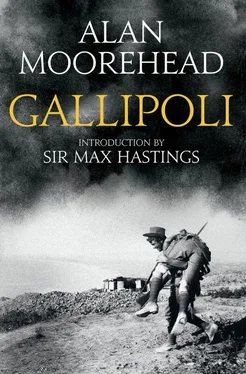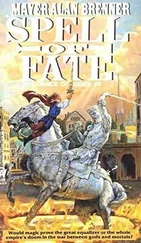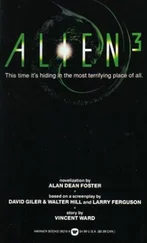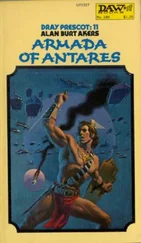Liman was studying this scene when Essad Pasha, one of his Turkish corps commanders, brought him the news that the troops in the toe of the peninsula, some forty miles away to the south-west, were being hard pressed and were urgently calling for reinforcements. Essad Pasha was ordered to proceed at once by sea to the Narrows and take command there. But Liman himself lingered on at Bulair. Even when Essad reported later in the day from Maidos that the battle in the south was growing critical, Liman still could not bring himself to believe that the landings near Gaba Tepe and Cape Helles were anything more than a diversion. However, he dispatched five battalions by sea from Gallipoli to the Narrows, while he himself remained behind in the north with his staff.
That night the fire from the enemy warships off Bulair died away, and when no further action followed in the morning Liman was persuaded at last that the real battle lay in the peninsula itself. He then took a major decision: the remainder of the two divisions at Bulair were ordered south, and he himself proceeded to Mal Tepe, near the Narrows, to take command.
Thus on both sides the opening phases of the battle were fought in the absence of the commanders-in-chief; each having made his plan stood back and left the issue to the soldiers in their awful collision on the shore.
The behaviour of the Turks is another part of the mystery. It is true that they were defending their own soil against a new Christian invasion from the west. They had their faith, and their priests were with them in the trenches inciting them to fight in the name of Allah and Mahomet. For many weeks they had been preparing for this day; they were rested and ready. But when all this is said, one still finds it difficult to understand their esprit de corps. For the most part they were illiterate conscripts from the country, and they fought simply because they were ordered to fight. Many of them had been without pay for months, they were poorly fed and badly looked after in every way; and the discipline was harsh.
One would have thought that these things would have been enough to have broken their spirit when the first dreadful barrage fell upon them from the sea. Yet, with one or two exceptions, the Turks fought with fantastic bravery on this day, and although they were always out-gunned and out-numbered their steadiness never forsook them. They were not in the least undisciplined in the way they fought; they were very cool and very skilful.
Nor is the conduct of the Allied soldiers very easily explained. Certainly they had the expedition feeling; they were young and consequently they believed that they could do anything. Yet very few of Hamilton’s troops had ever come under fire before or had ever killed a man or seen death around them. The midshipmen who took the boats to the shore were hardly more than children, and even the professional French and British soldiers had little conception of the nature of a modern battle, let alone so strange and perilous an operation as this. In the case of the Australians and New Zealanders there was not even a tradition to guide them, for there had been no wars at all in their country’s past. They had no immediate ancestors to live up to — it was simply a matter of proving themselves to themselves, of starting a tradition here and now.
The unknown, which is the real destroyer of courage, pressed more heavily on the Allies than the Turks, for these young men were a long way from their homes, most of them had lived much more protected lives than the Anatolian peasant, and now, at this first experience of war, they were the ones who had to get up into the open and expose themselves while the Turks remained in their safe and familiar trenches. Everything before the Allied soldiers was unknown: the dark sea, the waiting enemy, the very coast itself and all that lay beyond. And it was perhaps not very helpful that General Hunter-Weston should have made a proclamation to the 29th Division before the battle saying, ‘heavy losses by bullets, by shells, by mines and by drowning are to be expected.’ But none of this made any difference.
A wild exuberance seems to have seized upon everybody’s mind. The Australians rush ashore shouting ‘Imshi Yallah’, a phrase they had picked up in more careless days in Cairo. The sixteen-year-old British midshipman, standing up very straight at the tiller, grounds his boat on the sand, cries out some phrase from the football field, and such of his men who are still alive follow him ashore. The French doctor, operating in a ghastly welter of blood, makes a note in his diary, ‘I have sublime stretcher-bearers.’
They probably were sublime, for nearly everyone seems to have been possessed with an inhuman recklessness and selflessness on this day. On one beach alone no fewer than five Victoria Crosses were won within a few hours of the landing.
Still another decoration [11] The D.S.O. It was in the following year that Freyberg was awarded the V.C. in France.
was awarded to Lieut.-Commander Bernard Freyberg in circumstances which, though hardly typical of the fighting, do manage to convey perhaps as well as anything the curiously dedicated courage of the men. Freyberg, who was one of the party who had buried Rupert Brooke on Skyros two days before, came north with the Royal Naval Division, and as part of the pretended landing which was so successful in delaying Liman von Sanders at Bulair he was chosen to lead a boatload of soldiers ashore in the darkness. At the last moment, however, he pointed out that it was unwise to risk the lives of a whole platoon when one man would suffice. Accordingly he had himself taken towards the land in a naval cutter, and when the boat was still two miles from the coast he slipped naked into the icy midnight sea and swam ashore carrying on his back a waterproof canvas bag containing three oil flares and five calcium lights, a knife, a signalling light and a revolver. Reaching the beach after an hour and a half’s hard swimming, he lit his first flare, and then entering the water again swam on for another 300 yards to the east. Landing again he lit another flare and crept into some bushes to await developments. Nothing happened. He then crawled into the Turkish entrenchments, and finding no one about went back to the shore and ignited the third flare.
Freyberg’s chances of being picked up again in the expanse of black water in the bay were not very good, and by now he was suffering from cramp. But he loathed the idea of being made a prisoner of war; and so he went back into the sea and swam out into the darkness. He did not drown. When he was about half a mile from the shore the crew of the cutter caught sight of his brown oil-painted body in the waves. He was hauled on board and restored to life again.
Finally, among all these imponderables there remains the perplexing nature of the battlefield itself. Hamilton naturally made some effort to carry out a reconnaissance of the peninsula beforehand. Some of his senior officers had been taken up the coast in a destroyer to study the beaches and the cliffs, one or two of them had been flown over the scene; and there were Samson’s photographs. But none of these measures succeeded in conveying any real idea of the difficulties of the country, and the maps which were supplied to the officers were incomplete, if not downright inaccurate. In the case of the southern landing around Sedd-el-Bahr at Cape Helles there was at least some guidance to be had from the reports of the marines who had gone ashore during the naval bombardments in February and March. But the Gaba Tepe region, where the Anzac troops were to land, was unmapped and almost wholly unknown. It is still the most savage part of the whole peninsula.
From Chunuk Bair a hopeless maze of scrub-covered ridges drops almost sheer into the sea, and some of the ravines are so precipitous that nothing will grow upon their sides. There is no general He to the land; dried-up watercourses abruptly change direction and end in walls of gravel, each scarred crest leads on to another tangle of hills and formless valleys. Even with a map the eye quickly grows tired; by the very nature of their endless disparity the outlines dissolve and all shapes become one shape like the pieces of a jigsaw puzzle. There is, too, something unwanted and desolate in this scene; one feels that it has become a wasteland without any purpose or design in nature.
Читать дальше












